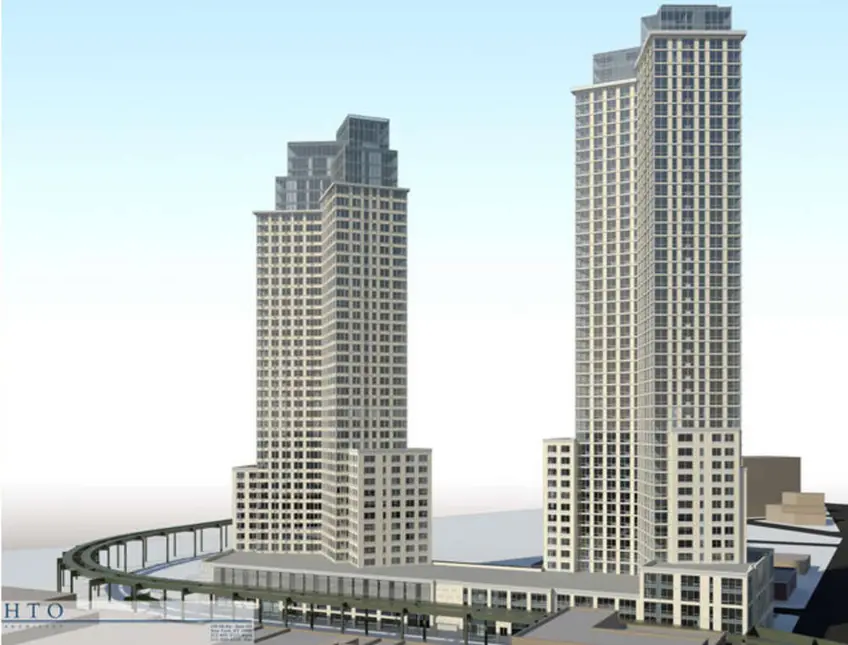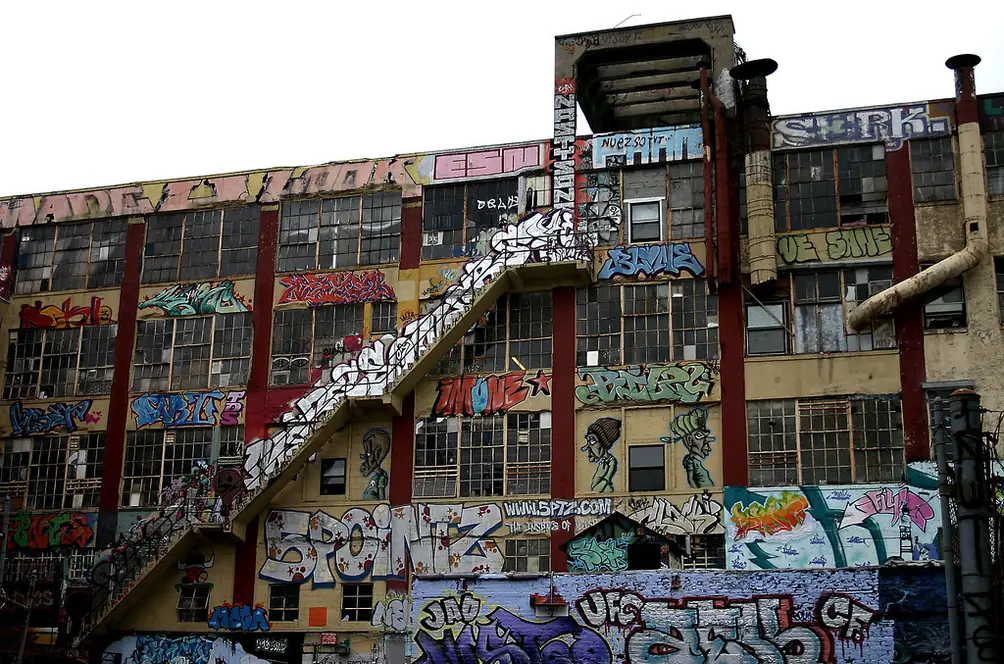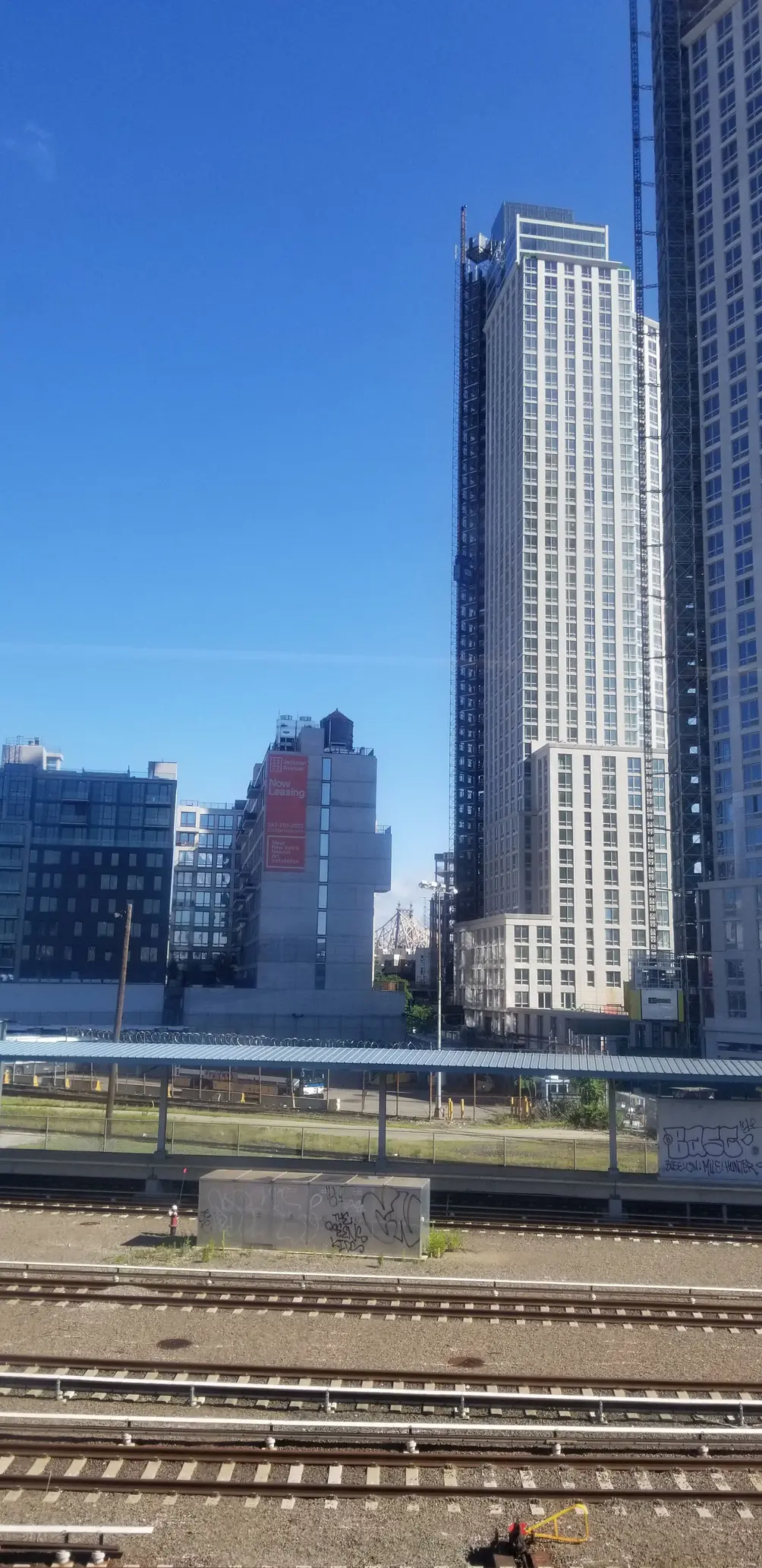 5Pointz. Credit: HTO Architect
5Pointz. Credit: HTO Architect
At this time, the two-towered complex, located by the Court Square station of the 7 train, is in the final stages of construction. The construction elevator is currently being dismantled off the facade of the taller tower, with interior work in full progress. As such, the proposed permits would address the unit change post-factum. Wolkoff defends the action as one that is not only legal, since it only changes the interior configuration rather than adds square footage, but also as praise-worthy since it meets the demand for small apartments given the abundance of incoming young professionals. In turn, the community board argues that what is built does not match the original proposal. Wolkoff countered by referring to the special permit’s original mention of “approximately” 1,000 units, which he explains was at-the-time uncertainty regarding the final layouts.
The community board expressed further concern with a lack of transparency. In July, The City reported that Marie Cecile Flageul, a spokesperson for an unspecified 5Pointz artist group, and David Birdsell, dean of Baruch College’s Marxe School of Public and International Affairs, described a recent dinner between Wolkoff and a member of the community board as a “secret meeting" allegedly focused on the permits.
 The abandoned warehouse prior to demolition. Credit: sach1tb on flickr
The abandoned warehouse prior to demolition. Credit: sach1tb on flickr
Long Island City’s long-awaited renaissance arrived at the start of the 2010s when a booming real estate market and recent upzoning transformed the transit-rich, Midtown-proximate district into a development hotspot. In 2013, Wolkoff opted to replace the building with a one-million-plus-square-foot development.
By this time, the five-story loft had gained global notoriety as a destination for aerosol art. Wolkoff received a city permit for demolition in March 2014, which called for demolition in September. Demolition was delayed, and when Wolkoff unexpectantly whitewashed the building in the middle of the night in November, a group of graffiti artists took him to federal court and ultimately received a $6.7 million settlement. Wolkoff, who is appealing the ruling, has since invited local artists to return to the site upon completion.
The current issue also dates back to the project’s conception. In February 2013, G&M Realty, L.P. filed an application for a special permit to boost the allowable floor-to-area ratio and streetwall configuration. The permit called for a “proposed mixed-use development containing approximately 1,000 housing units, 50,000 square feet of retail space, 2,200 square feet of artists’ studios, approximately 32,100 square feet of public open areas, and a 250-space public parking garage.”
The building permit, approved in July 2014, showed a final tally of 1,115 housing units (an increase achieved generally through provision of smaller units than initially planned) and 40,000 square feet of commercial space; the number of parking space remains consistent at 250. The City article adds that the current iteration boosts artist studio space to 15,000 square feet while maintaining the allowance for public space.
However the present event turns out, we expect that this is not the last that we will hear about the clash of local input at 5Pointz.
This story was originally published on July 25, 2019, and updated on July 31, 2019, and later on August 6, 2019.
 5Pointz in June 2019. Credit: Vitali Ogorodnikov
5Pointz in June 2019. Credit: Vitali Ogorodnikov

 6sqft delivers the latest on real estate, architecture, and design, straight from New York City.
6sqft delivers the latest on real estate, architecture, and design, straight from New York City.
